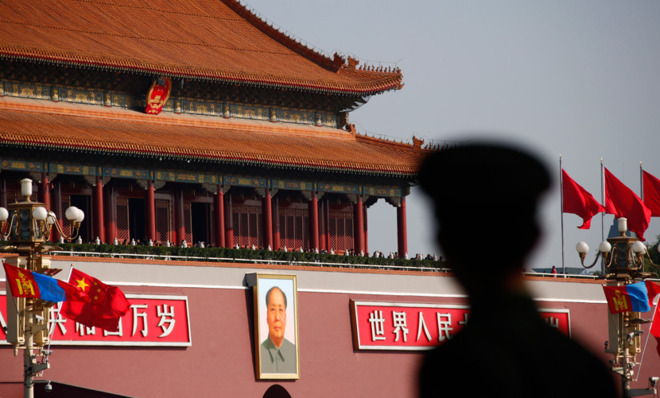Why is China downplaying its deadly Tiananmen Square attack?
If suspected Islamist terrorists had set off a killer car bomb in the Washington Mall...


A free daily email with the biggest news stories of the day – and the best features from TheWeek.com
You are now subscribed
Your newsletter sign-up was successful
On Oct. 28, an SUV plowed into a crowd near Beijing's Tiananmen Square and then burst into flames, killing two tourists and the vehicle's three occupants, and wounding 38 others. On Wednesday, two days after the attack, the government blamed the "violent terrorist attack" on a Uighur militant group, the East Turkestan Islamic Movement (ETIM). The Uighur are an ethnic group that live in China's Xinjiang province, bordering Pakistan.
This would seem to be a big deal. "Tiananmen is the symbolic heart of China," reporter Han Bin told China's CCTV on Thursday. "This week's attack has sent shockwaves across the country."
But you wouldn't know that from reading the Chinese press.
The Week
Escape your echo chamber. Get the facts behind the news, plus analysis from multiple perspectives.

Sign up for The Week's Free Newsletters
From our morning news briefing to a weekly Good News Newsletter, get the best of The Week delivered directly to your inbox.
From our morning news briefing to a weekly Good News Newsletter, get the best of The Week delivered directly to your inbox.
On Wednesday, the independent China Digital Times said that the Chinese government had issued "censorship instructions" to the media. According to the China Digital Times' translation of the reportedly leaked instructions, the Tiananmen bombing must be covered "in strict accordance with Xinhua News Agency wire copy."
Downplay the story; do not speculate on it; do not exaggerate it; do not put the story on the front page or website homepage; do not produce any other reports or commentary; do not use images; and strengthen management of the Weibo accounts of all media and media personnel. [Via China Digital Times]
The directives from on high are having an impact. "Days later, it feels like the whole city got that memo," says Emily Rauhala at TIME. She adds, "Eyewitness accounts keep disappearing from the web. An ethnic Uighur expert declined to comment, citing instructions from her superiors."
If suspected Islamist terrorists had exploded a deadly car bomb in the Washington Mall or Times Square, there's no way it wouldn't be plastered across the front page of newspapers nationwide and the subject of endless discussion (and baseless speculation) on cable news.
Here's the best explanation for why China has put the kibosh on publicizing the attack. Tiananmen Square is "the symbolic heart of the Chinese state," says AFP's Kelly Olsen. The fact that there was a terrorist attack there "represents an embarrassing failure for the nation's vast police and intelligence apparatus and shows it cannot plug all security vulnerabilities."
A free daily email with the biggest news stories of the day – and the best features from TheWeek.com
Communist China spends vast sums on ensuring order among a population of 1.35 billion people, more even than on its military, the world's largest.... The square is permanently under heavy security with uniformed and plainclothes police constantly on the lookout for any sign of trouble, though the specter of a terrorist attack in the center of Beijing raises the stakes significantly. [AFP]
Furthermore, it's important to keep in mind where the alleged attackers are coming from. Xinjiang exploded with violent riots in 2009, as Uighurs protested against a years-long campaign of religious and ethnic discrimination by the atheist Communist Party, dominated by ethnic Han Chinese. The province remains highly volatile, and the attack on Tiananmen is widely seen as a foray into new tactics to resist centralized rule. By downplaying coverage of the attack, the CCP is also preventing a discussion about its underlying motivations, which are dangerously sympathetic.
There are arguably legitimate reasons to want to tamp down chatter about terrorist attacks: A lot of the early speculation turns out to be wrong, sometimes harming innocent people; the publicity could inspire copycat attacks; and lengthy profiles of the attacker can create a martyr.
But you can bet that the Chinese government is mostly interested in maintaining its hegemony. As TIME's Rauhala notes:
As eyewitness accounts of the chaotic scene are ripped from the web, a new, more controlled, narrative will be crafted — one that focuses on the government's swift and competent response... In other words: nothing to see here folks, move along. [TIME]
Peter has worked as a news and culture writer and editor at The Week since the site's launch in 2008. He covers politics, world affairs, religion and cultural currents. His journalism career began as a copy editor at a financial newswire and has included editorial positions at The New York Times Magazine, Facts on File, and Oregon State University.
